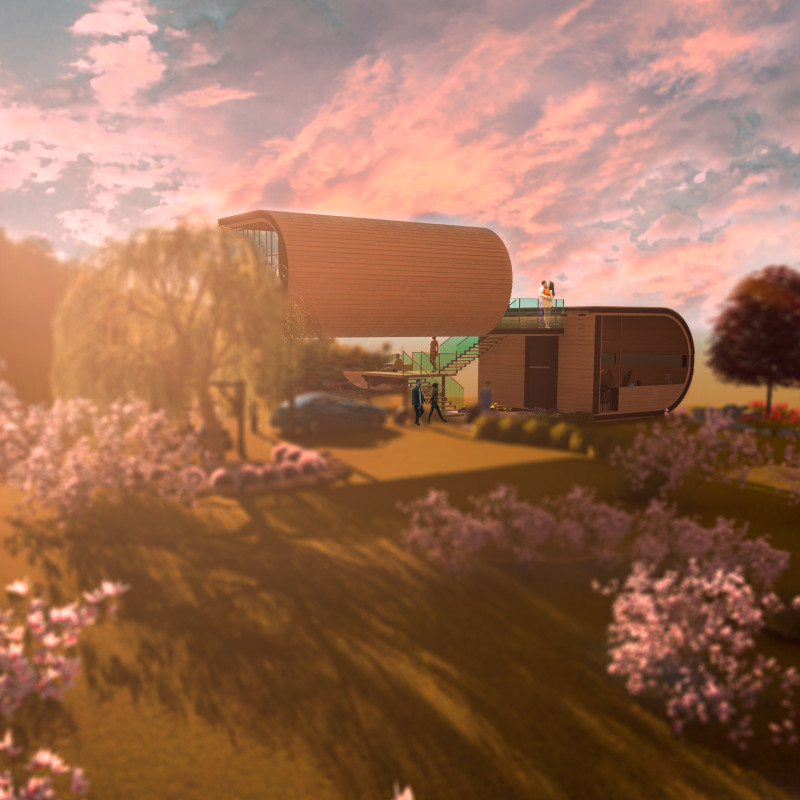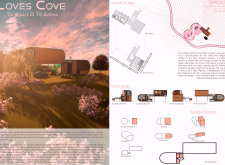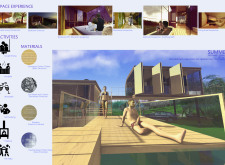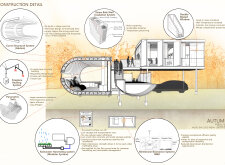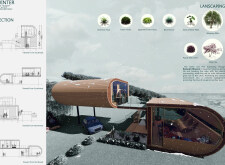5 key facts about this project
The primary function of Love’s Cove is to serve as an accommodation space that provides privacy while promoting a tranquil atmosphere. The structure consists of interconnected spaces that foster both social interaction and isolation, allowing guests to tailor their experiences. The architectural layout includes communal areas as well as private suites, maximizing the potential for romantic engagement.
The distinct design approach of Love’s Cove is marked by its use of organic forms and sustainable building materials. The architecture employs rounded geometries that reflect the natural contours of the surrounding landscape, providing a soft and inviting aesthetic. The building's materials include RewaRewa glulam timber, bamboo for interior finishes, and double glazed tinted glass, ensuring both visual comfort and energy efficiency. The integration of straw bale wall insulation enhances the thermal properties, contributing to the sustainability of the project.
Unique features further differentiate Love’s Cove from standard accommodation facilities. For example, the incorporation of a rainwater harvesting system aligns with eco-friendly practices and underscores the project's commitment to sustainability. Additionally, a custom-designed parametric sofa serves as a multifunctional element that enhances both comfort and space efficiency, positioning itself as a focal point within the living area.
The project also demonstrates a strong relationship with its environmental context by using native plant species in its landscaping, which complements the architectural design. This thoughtful integration underscores the aim of providing guests with an immersive experience in the local ecosystem.
For those interested in understanding the architectural nuances and technical specifications of Love’s Cove, a review of the architectural plans, sections, designs, and underlying ideas will provide valuable insights into the project. Exploring these elements will allow readers to appreciate the comprehensive approach taken in the design and construction of this distinctive retreat.


